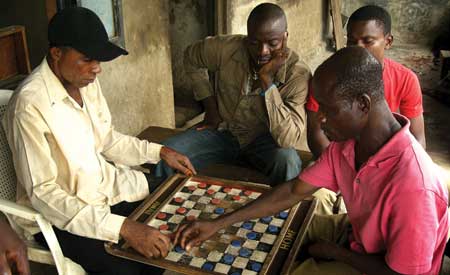Gender Audit of Political Parties in Nigeria
-
February 27, 2022
- Posted by: Center for Social Justice

Women often face barriers to their effective participation in the electoral process. Their participation rights are frequently undermined by cultural expectations and social norms, exclusion from male-dominated decision-making platforms including political parties, lack of financial resources, restricted access to information and knowledge, discrimination and widespread violence. Throughout the electoral cycle, a wide range of stakeholders can commit to promote gender equality and women’s participation in their respective action fields, including political parties, electoral management bodies. This book presents an audit of women’s involvement in party politics in Nigeria, as well as strategies to be implemented by relevant stakeholders to promote gender equality throughout the electoral process.
Chapter One of the Gender Audit of Political Parties in Nigeria is the introduction that recapped a background to the primary terms in the audit’s topic. The chapter also develops the conceptual framework, focus, objectives and methodology, as well as the rationale for the audit. From desk research, the female gender has continued to record low representation and participation in politics and governance in Nigeria. The audit set out to investigate gender participation in the country’s politics, focusing on the political parties.
The specific objectives are to update the status of gender participation in Nigeria’s politics, and to ascertain the causes of women’s low political participation, thereby, suggest ways to mainstream gender in the political parties’ processes to improve women’s participation in politics and governance. The study sought how to improve the representation and participation of people in their governance and seek ways to make governance in the country yield better results.
To achieve the objectives, the audit interrogated the political parties, since they are the means of political activities and governance. The audit sought to identify the processes and practices that discriminate against women as well as the political economy behind gender imbalance in political parties in Nigeria. The data provided will be useful for gender advocates in their engagements towards increased women’s political participation. Finally, the data and subsequent engagements of gender advocates will encourage the political parties to better and effectively mainstream gender in all their processes and programmes in the political parties in Nigeria.
The audit focused on six political parties as to the proxies for the analysis. The political parties were selected based on their relevance to the audit’s agenda. The parties are: the All Progressives Congress (APC) being the ruling party; the Peoples Democratic Party (PDP) being the party controlling the second-highest number of states and representatives in the legislature; the All Progressives Grand Alliance (APGA), which controls Anambra State; the Labour Party (LP), which once controlled Ondo State and has an affiliation with the Nigeria labour movement and the trade union congress; the Young Progressives Party (YPP) because it is positioned as a political party of the new generation and new ideas to represent the present generation, a departure from the older brigade parties; and the Social Democratic Party (SDP) selected at random to represent other political interests. The political parties’ leadership, some women and men in politics, some women political aspirants/candidates between 2015 and 2019 elections, some staff of political parties, some female appointees, and the Independent National Electoral Commission (INEC) officials were contacted as the respondents because of their positions as the target groups and the stakeholders in politics and governance.
Chapter Two focused on laws, policies and standards at the international and national levels that promote women’s right to participate in politics and governance. The relevant international standards reviewed are the Universal Declaration of Human Rights (UNDHR); International Convention on Civic and
Political Rights (ICCPR); Convention on the Elimination of All Forms of Discrimination against Women (CEDAW); Beijing Declaration and Platform for Action, Sustainable Development Goals (SDGs); African Charter on Human and Peoples Rights (ACHPR) and the Protocol to the African Charter on Human and Peoples’ Rights on the Rights of Women in Africa. The national standards reviewed are the Constitution of the Federal Republic of Nigeria 1999 (as amended), National Gender Policy (NGP) and the Gender Policy of the country’s electoral commission, INEC. These laws form the standard for the audit’s analysis.
Chapter Three reviewed the constitutions and manifestos of the political parties to determine the extent to which they address gender and women inequality. The chapter also compared the political parties’ constitutional provisions with the factual composition of their leadership based on their supposed last submissions to the INEC. The audit found much dissonance between the promises of the constitutions and manifestos and the actual practice of the political parties.
Chapter Four recapped the barriers and challenges militating against women’s effective participation in politics and governance. The challenges include the law conundrum – legal provisions which lack specificity and do not create concrete and enforceable rights, patriarchy, religion and culture, finance and low-levels of education. Others are political violence, the non-indigenes syndrome, late meeting schedules, lack of gender-disaggregated data, personnel policies that are not gender-sensitive, stigmatisation, lack of mentorship and elections that are neither free nor fair nor credible.
The audit was concluded in Chapter Five with the author’s recommendations [that are targeted] to bridge the continuing existing significant gender gap skewed against the female gender. The recommendations were made not only for equal justice, but expectedly, to improve the country’s good governance.
The principle of fairness and justice are enough to compel the parties (country and political parties) to address the gender gap in politics. The implications of the findings in this audit suggest a novel approach like improved involvement of the side-lined female gender or equal representation of all the genders against a practice of male-gender dominated governance and a result of poor governance that have remained the same, for more than two decades. It is time women are more represented and allowed more participation in the country’s governance.
